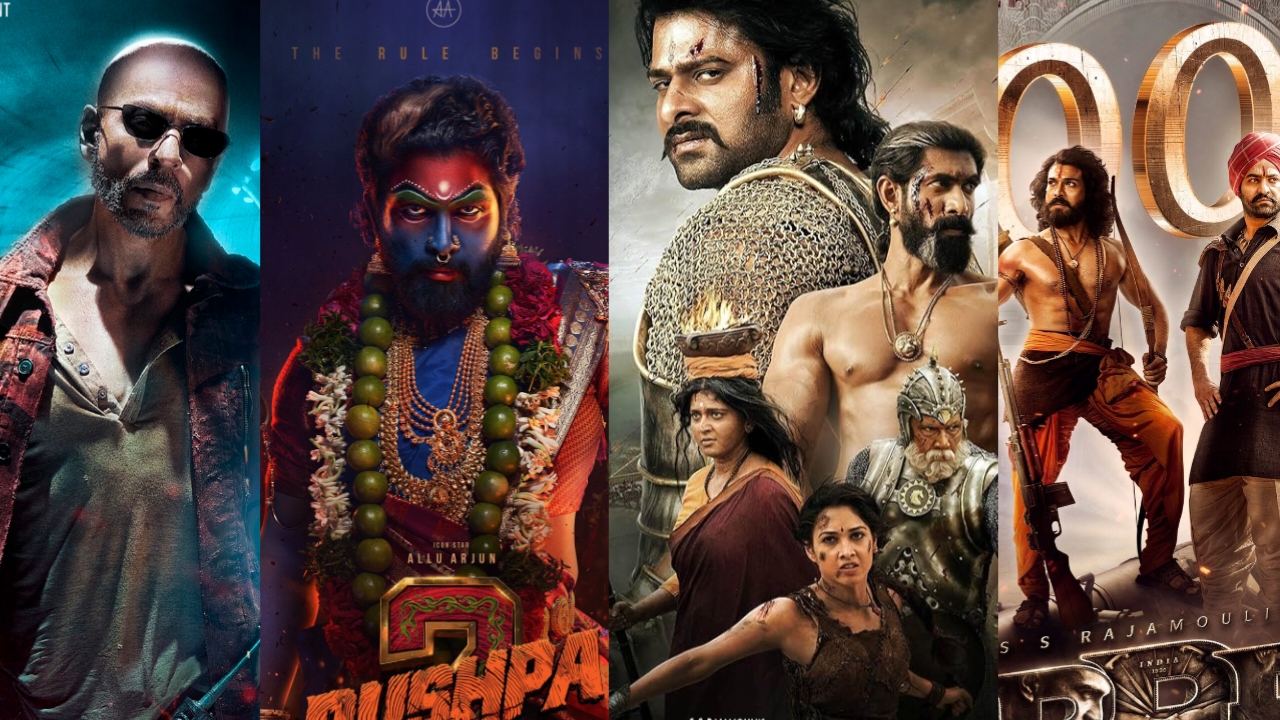Mukesh Khanna Reviews Pushpa 2: Praises Allu Arjun’s Acting but Criticizes Morality in the Film
Veteran actor Mukesh Khanna, known for his legendary roles as Shaktimaan and Bheeshma Pitamah in the Mahabharata series, recently made waves with his review of Pushpa 2: The Rule on his YouTube channel, Bheeshm International. While he lauded Allu Arjun’s powerful portrayal of Pushpa, he raised significant concerns about the film’s moral compass, questioning its glorification of illegal activities and its negative portrayal of law enforcement.
Allu Arjun’s Stellar Performance and Potential as Shaktimaan
Mukesh Khanna, a stalwart of Indian television, began his review by heaping praise on Allu Arjun’s mesmerizing performance. He highlighted Arjun’s magnetic screen presence, flawless dialogue delivery, and intense dedication to his craft. Khanna remarked, “Allu Arjun is a brilliant actor. His portrayal of Pushpa is powerful and captivating. If given the opportunity, I believe he could even step into the shoes of Shaktimaan.”
This statement sparked considerable buzz among fans of the iconic superhero. Khanna’s Shaktimaan remains a cultural touchstone, and his endorsement of Arjun as a potential successor reflects the actor’s admiration for Arjun’s charisma and versatility. The veteran actor pointed out that Arjun’s ability to blend action, emotion, and drama makes him an ideal candidate for such a revered role.
The Issue with Glorification of Smuggling
However, Khanna’s review didn’t shy away from addressing what he perceives as problematic elements in the film. Pushpa 2, like its predecessor, delves into the world of red sandalwood smuggling, portraying the protagonist as a rebellious anti-hero who defies societal norms and legal boundaries.
Khanna criticized this narrative, stating, “While Allu Arjun’s performance is commendable, I cannot support a story that glorifies illegal activities like smuggling. Cinema has a powerful impact on society, and such portrayals can send the wrong message, especially to younger audiences.”
He expressed concern over the increasing trend of romanticizing outlaws in Indian cinema, questioning the responsibility of filmmakers in shaping societal values. According to Khanna, while grey characters can add depth to storytelling, their glorification without a moral conclusion can lead to dangerous perceptions.
The Antagonization of Law Enforcement
Another aspect of the film that drew Khanna’s ire was its portrayal of law enforcement officers. He argued that the film depicted police officers in a largely negative light, painting them as corrupt, ineffective, or excessively brutal. This, he said, undermines the respect and trust that the public should ideally have for law enforcement agencies.
“Why antagonize the police? Yes, there are instances of corruption, but not all officers are bad. Films like this create a narrative where the audience starts to mistrust those who are supposed to protect us,” Khanna explained.
He urged filmmakers to strike a balance between creative freedom and social responsibility, suggesting that stories should celebrate positive values and promote respect for institutions rather than undermining them.
The Dichotomy of Entertainment and Ethics in Cinema
Mukesh Khanna’s critique of Pushpa 2 highlights a larger debate in Indian cinema: the fine line between entertainment and ethics. Films like Pushpa 2 offer gripping narratives, high-octane action sequences, and memorable performances, but they also bear the responsibility of influencing societal attitudes.
Khanna elaborated on this in his review, noting that cinema is a powerful medium that can educate, inspire, and entertain simultaneously. He cited examples of classic films that managed to strike this balance, offering wholesome entertainment while promoting positive values.
“In the past, films like Sholay and Do Aankhen Barah Haath entertained audiences without compromising on ethics. Why can’t today’s filmmakers do the same? Stories can be thrilling without promoting illegal activities or vilifying those who uphold the law,” he asserted.
Allu Arjun’s Growing Legacy
Despite his criticism of the film’s moral undertones, Khanna’s admiration for Allu Arjun remained evident throughout his review. He acknowledged the actor’s immense contribution to Indian cinema, particularly in elevating Telugu cinema to a global platform. Arjun’s portrayal of Pushpa has resonated with audiences across linguistic and cultural boundaries, making him a pan-Indian superstar.
Khanna praised Arjun’s dedication to his craft, noting how the actor undergoes intense physical and emotional preparation for his roles. He compared Arjun’s commitment to that of legendary actors like Amitabh Bachchan and Rajinikanth, who have consistently delivered iconic performances throughout their careers.
The Role of Filmmakers in Shaping Society
Mukesh Khanna’s critique serves as a reminder of the social responsibility that filmmakers bear. While cinema is undeniably a form of artistic expression, it also wields significant influence over public opinion and cultural norms. Khanna urged filmmakers to be mindful of this power and to use it to promote values that contribute to a better society.
He suggested that stories with anti-heroes could still convey a strong moral message by showcasing the consequences of their actions. This approach, he argued, would allow filmmakers to create compelling narratives without glorifying unethical behavior.
The Way Forward: A Call for Responsible Storytelling
Khanna concluded his review with a call for more responsible storytelling in Indian cinema. He acknowledged the challenges faced by filmmakers in balancing artistic freedom with societal accountability but emphasized that it is a responsibility they cannot afford to ignore.
“Cinema has evolved over the years, and so have audiences. Today’s viewers are discerning and crave meaningful stories. It’s time for filmmakers to rise to the occasion and create content that entertains while also inspiring positive change,” he said.
Final Thoughts
Mukesh Khanna’s review of Pushpa 2: The Rule offers valuable insights into the dual role of cinema as both an art form and a social influencer. While he praised Allu Arjun’s extraordinary performance and even saw the potential for him to play Shaktimaan, he didn’t hesitate to call out the film’s glorification of illegal activities and its antagonistic portrayal of law enforcement.
His critique is a timely reminder of the power of cinema and the responsibility of filmmakers to use that power wisely. As Indian cinema continues to push boundaries and explore new narratives, voices like Mukesh Khanna’s can help ensure that entertainment and ethics go hand in hand.













